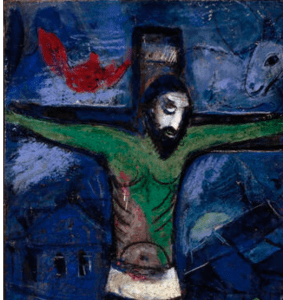
Where she goes wrong is in imaging that developments in the new physics, such as indeterminacy, can change the way we think about God.* She’s wrong because while the new science of sub-atomic physics, strangeness, string theory, and quarks may inspire us to think more flexibly about God, there is no reason that it should. The same may be said of astrophysics, and the fantastically beautiful images of distant galaxies brought back to us by the Hubble and Webb telescopes. The situation laid out by Albert Camus remains. We call out for the universe to tell us that we are not abandoned, isolated, and alone, and the universe is silent.
The absurd is born of the confrontation between the human need and the unreasonable silence of the world. (Camus, p 28)
The new science is a source of the sublime, that experience that shatters our previous categories of experience. “Beauty is the beginning of terror we are still just able to bear,” said Rilke. The new science is beautiful; the new science is terrifying. But unless one is looking strictly for inspiration, it does nothing to change the absurdity of human existence. Humans long for a world that cares about us, and the world cares not. Camus calls that the absurdity (absurdité) of the human condition, and it’s as good a word as any.
Continue reading Karen Armstrong, the new physics, and religion

 T. S. Eliot’s Journey of the Magi, a poem of 43 lines, was one of a collection of poems with Christmas subjects “suitably decorated in colours and dressed in the gayest wrappers,” published by Faber and Faber to celebrate the season. However, if one bothers to read the poem there is nothing gay or celebratory about it. It reflects the dark musings of a pagan king who has seen the Christ child, knows that his birth will upend the world, but is hardly thrilled at the prospect. Perhaps the magus would be better off dead. First, the poem, and then a few comments on it.
T. S. Eliot’s Journey of the Magi, a poem of 43 lines, was one of a collection of poems with Christmas subjects “suitably decorated in colours and dressed in the gayest wrappers,” published by Faber and Faber to celebrate the season. However, if one bothers to read the poem there is nothing gay or celebratory about it. It reflects the dark musings of a pagan king who has seen the Christ child, knows that his birth will upend the world, but is hardly thrilled at the prospect. Perhaps the magus would be better off dead. First, the poem, and then a few comments on it.  I’ve posted before on
I’ve posted before on  A History of the Bible
A History of the Bible Is Eschatology Important?
Is Eschatology Important? It should have been a good book by a dying man. Review of The end of Christian life, by J. Todd Billings
It should have been a good book by a dying man. Review of The end of Christian life, by J. Todd Billings Heaven can wait: Three Views of Heaven.
Heaven can wait: Three Views of Heaven. A Secular Age, by Charles Taylor, is 874 pages long. A critic says “its size is preposterous. No work of philosophy needs to be anywhere this long.” (Larmore). A Rumor Angels, by Peter Berger, is 104 pages long. It makes much the same argument as Taylor, and makes it more clearly. Clarity is almost always a virtue; in this case, because it allows us to see where each goes wrong. Berger appears more obviously wrong than Taylor, but that is mostly because we can see his argument more clearly.
A Secular Age, by Charles Taylor, is 874 pages long. A critic says “its size is preposterous. No work of philosophy needs to be anywhere this long.” (Larmore). A Rumor Angels, by Peter Berger, is 104 pages long. It makes much the same argument as Taylor, and makes it more clearly. Clarity is almost always a virtue; in this case, because it allows us to see where each goes wrong. Berger appears more obviously wrong than Taylor, but that is mostly because we can see his argument more clearly.